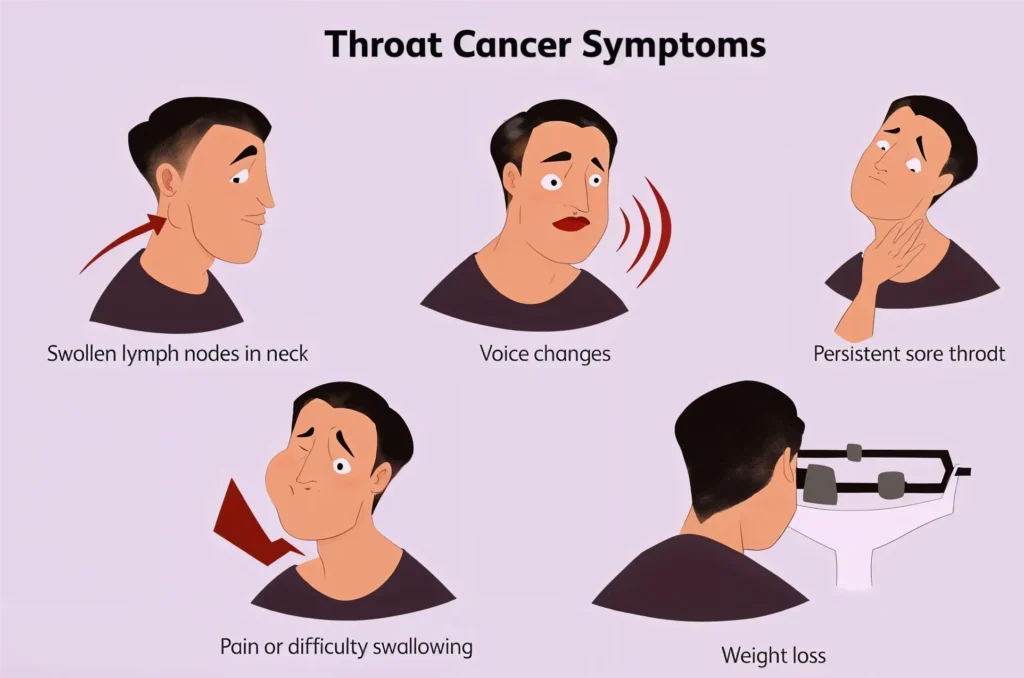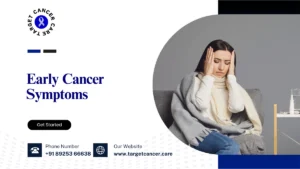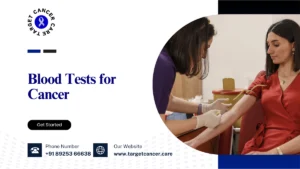When faced with a diagnosis of throat cancer, one of the most common questions is: Is throat cancer curable? The good news is that, in many cases, throat cancer can be treated successfully, especially if detected early. Treatment options like surgery, chemotherapy, and radiation therapy have helped many patients overcome the disease. However, as with any cancer, the chances of a successful outcome depend on several factors, including the stage of the cancer, its location, and the overall health of the patient. Understanding the factors that influence the prognosis of throat cancer is vital. In this blog, we will explore the key aspects of throat cancer treatment, survival rates, risk factors, and more.
Is Throat Cancer Curable?
Is throat cancer curable? This is one of the most common questions asked by people who are diagnosed with throat cancer. The answer depends on several factors, including the type and stage of cancer, as well as how early the cancer is detected. Throat cancer is curable in many cases, particularly if it is detected early and the appropriate treatment is applied. Early-stage throat cancer, when confined to the throat, often responds well to treatment, offering patients a chance at a full recovery.
Types of Throat Cancer
There are several different types of throat cancer, and each has its own treatment approach and prognosis. The two main types are:
- Laryngeal cancer: Cancer of the voice box.
- Pharyngeal cancer: Cancer of the throat.
Treatment options for these cancers typically include surgery, radiation, chemotherapy, or a combination of these. The earlier the cancer is diagnosed, the better the chances of success. However, is throat cancer serious in more advanced stages? In these cases, treatment may focus on controlling the disease and improving the quality of life rather than curing it.
What Are the Survival Rates?
Survival rates for throat cancer depend on the stage of diagnosis. For early-stage cancer, survival rates can be 80-90%. Can throat cancer be cured? In early stages, treatment is often effective, but if cancer spreads, survival rates drop significantly.
Here are some general survival rates for throat cancer:
- Early-stage throat cancer: Patients diagnosed with early-stage throat cancer typically have a survival rate of 80% or higher. This is due to the fact that the cancer has not spread, making it easier to treat.
- Advanced-stage throat cancer: For those with later-stage throat cancer, survival rates can drop to 40-50%. Is cancer in the throat curable? Though a complete cure is less likely, treatments like chemotherapy, radiation, and surgery can help control the disease and improve quality of life
Is throat cancer curable? It is highly treatable in the early stages, and with the right approach, many patients go on to live full lives after treatment.

What Are the Risk Factors and Symptoms?
Several factors can increase the likelihood of developing throat cancer. Some of the most common risk factors include:
- Smoking and alcohol use: Smoking and excessive alcohol consumption are leading causes of throat cancer. Is throat cancer serious? Yes, these factors increase the risk and severity of the disease..
- HPV (Human Papillomavirus): Certain strains of HPV, a sexually transmitted virus, have been linked to cancers of the throat, especially in the tonsils and base of the tongue.
- Age and gender: Throat cancer is more common in older adults, especially men, who have a higher risk than women.
- Exposure to toxins: Occupational exposure to chemicals, dust, or asbestos can increase the risk of throat cancer.
Symptoms of Throat cancer
- Persistent sore throat or cough
- Difficulty swallowing or painful swallowing
- Hoarseness or changes in the voice
- Ear pain
- Lump in the neck or throat
Recognizing these symptoms early is crucial, as it may help in diagnosing the cancer before it becomes more difficult to treat. If you experience any of these symptoms, it’s essential to see a doctor for evaluation and diagnosis. Is throat cancer curable? Early diagnosis plays a significant role in improving the chances of successful treatment.
How Are Throat Cancers Diagnosed and Treated?
Diagnosing throat cancer typically involves several steps. Doctors may start with a physical exam to check for abnormalities in the throat, neck, and mouth. If further evaluation is needed, diagnostic tests such as endoscopy, biopsy, CT scans, or MRIs may be used to determine the extent of the cancer.
- Surgery: Surgery is often the first step in treating early-stage throat cancer, involving tumor removal or, in some cases, the voice box (laryngectomy). Can throat cancer be cured? Early-stage surgery is highly effective.
- Radiation therapy: This treatment uses high-energy rays to kill cancer cells and is often used in combination with surgery.
- Chemotherapy: Chemotherapy uses drugs to kill cancer cells. It is often used in more advanced stages of throat cancer or in combination with surgery and radiation.
- Targeted therapy and immunotherapy: These newer treatments focus on targeting specific cancer cells or boosting the body’s immune system to fight cancer.
Is throat cancer curable? Treatment effectiveness depends on the stage of cancer and how well the body responds to therapy. In the early stages, the prognosis is much better, and patients have a higher chance of a full recovery.
Do Throat Cancers Typically Recur?
Throat cancer, like many cancers, can sometimes return after treatment. This is more likely if the cancer was diagnosed at a later stage or if the tumor was not completely removed. Recurrence may happen in the same area or in distant parts of the body.
Patients who have undergone treatment should have regular follow-up appointments to monitor for signs of recurrence. Early detection of recurrence can lead to more effective treatments.
Is throat cancer curable? If cancer recurs, the treatment options and prognosis depend on how early the recurrence is detected and whether it can be effectively controlled.
How Can Lifestyle Changes Help?
- Quit Smoking: Quitting smoking significantly reduces the risk of throat cancer and other cancers.
- Limit Alcohol Consumption: Reducing alcohol intake lowers the risk of throat cancer and improves overall health.
- Diet & Exercise: Eating a healthy diet with fruits, vegetables, and antioxidants, along with regular exercise, strengthens the immune system and supports recovery.
is cancer in the throat curable While lifestyle changes alone cannot cure throat cancer, they can improve overall health and help in recovery following treatment.
Conclusion
Is throat cancer curable? Yes, throat cancer is curable, particularly when caught early. Treatment options such as surgery, radiation, and chemotherapy have proven effective in treating throat cancer and improving survival rates. However, early diagnosis and intervention are key to improving outcomes.





